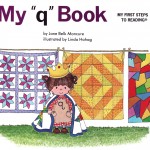 Thirty or forty years ago, Marshall McLuhan stated that we are surrounded by answers. He predicted that in the future survival and control will depend on the ability to question. We have seen how right he was. Science is based on asking questions and seeking answers. Some recent research looking at struggling readers found that they had difficulty with inferential questions. So it is important for us to help children develop the ability to form questions. Adults use more questions when talking to young children because it is the most clear signal to take turns in conversations. About the age of 2 children begin to ask questions for specific information. About age 3 they ask questions about everything, signalling their growing mental skills and their keen sense of discovery.
Thirty or forty years ago, Marshall McLuhan stated that we are surrounded by answers. He predicted that in the future survival and control will depend on the ability to question. We have seen how right he was. Science is based on asking questions and seeking answers. Some recent research looking at struggling readers found that they had difficulty with inferential questions. So it is important for us to help children develop the ability to form questions. Adults use more questions when talking to young children because it is the most clear signal to take turns in conversations. About the age of 2 children begin to ask questions for specific information. About age 3 they ask questions about everything, signalling their growing mental skills and their keen sense of discovery.
For today, when your little one asks something, point out that s/he is asking a question. As you read a story to your munchkin ask lots of questions that need more than just a yes or no answer, such as what do you think might happen next? what is funny in this story? Encourage your child to ask questions about the story, too. Working and playing at home or elsewhere weave in some questions. For older kids, play an Answer/Question game where you give an answer and your child thinks of the question. For example, if I gave the answer, “The sun is yellow”, what would the question be?
To add some fun ask some riddles. What does a duck eat with his soup? Quackers!
What’s your favorite riddle?
